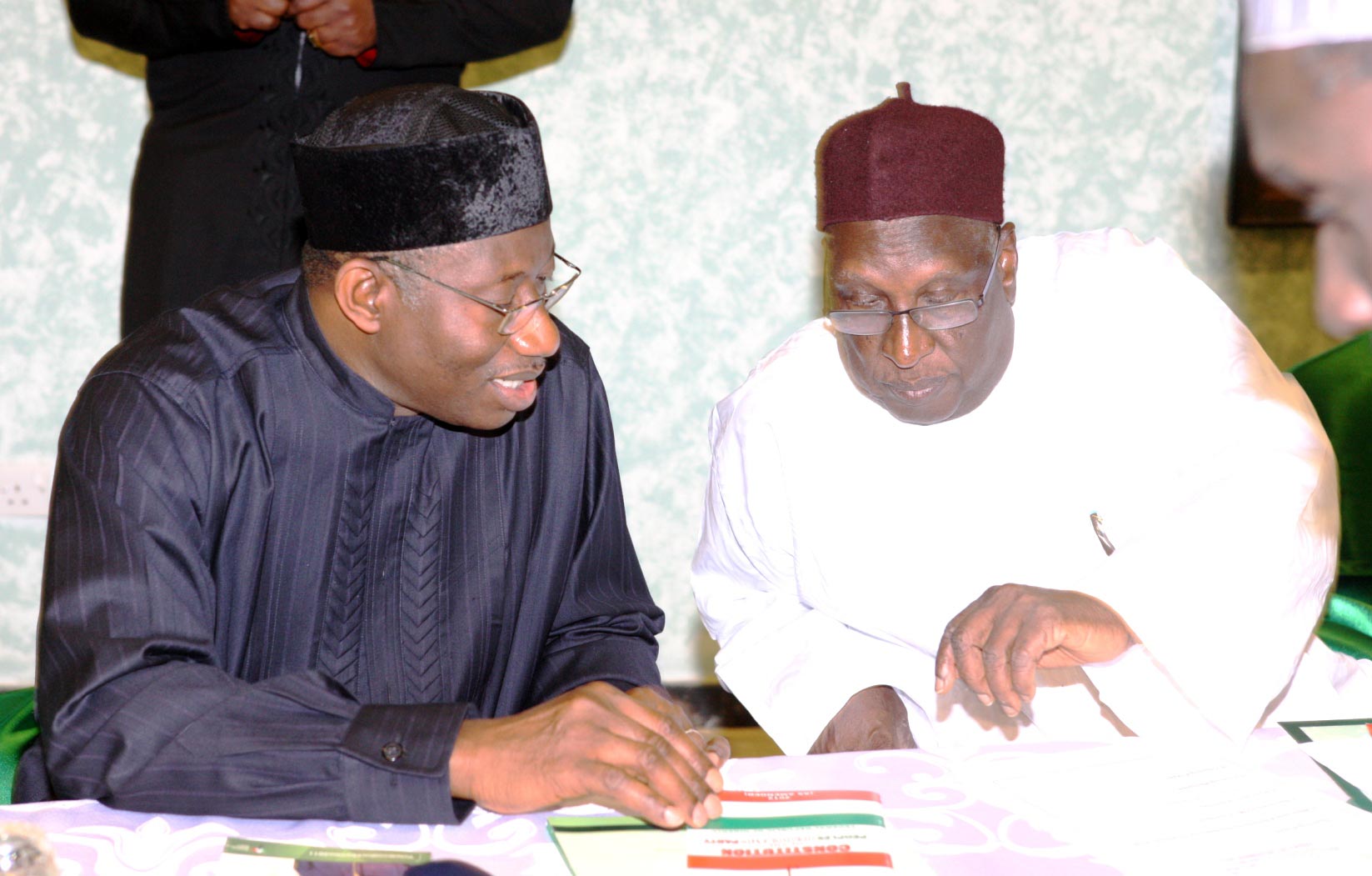As expected, the explosive letter written by former president Olusegun Obasanjo to Pres. Goodluck Jonathan has begun to elicit responses.
The PDP chairman, Bamanga Tukur, who was also mentioned in the letter has fired back at the former president, urging him to show respect to fellow elder statesmen and be mindful of how he attacks people in lofty positions such as the president’s.
Tukur said that the contents of Obasanjo’s letter was unfortunate.
The chairman spoke through his Special Assistant on Media, Prince Oliver Okpala.
“For such a statement against the person of the national chairman of the PDP to come from Chief Obasanjo, a former head of states and president is most unfortunate,” he said.
Tukur claimed that he was nobody’s stooge and was fully independent just as stipulated by the PDP constitution.
“Chief Obasanjo in his position as former president under the PDP platform should have known very well the Constitution of the party, the party manifestos as it relates to the independence of the PDP National Working Committee.
“For him to insinuate that the President is using the national chairman to cause multiple problems for the party doesn’t in any way portray him as a true democrat.
“Chief Obasanjo is very much aware of the fact that Dr Bamanga Tukur is a man of honour and proven integrity who shouldn’t be portrayed as a stooge to anybody.
“It is well known to Chief Obasanjo that Dr Bamanga Tukur is a man who acts according to the dictates of his conscience and conviction and in line with the party constitution and manifesto.
“Dr Tukur as the national chairman and one of the founding fathers of the party can never allow his opinion or decisions to be teleguided by any external force as a principled administrator and seasoned politician.
“Chief Obasanjo’s statement is certainly an attack on the personal integrity and credibility of Dr. Tukur as an outstanding statesman of international repute.
“Chief Obasanjo is however advised to tread with caution over his personal attacks or vituperations against his fellow elder statesmen or those exalted holding political positions in the country.”
Read More: The Scoop NG







